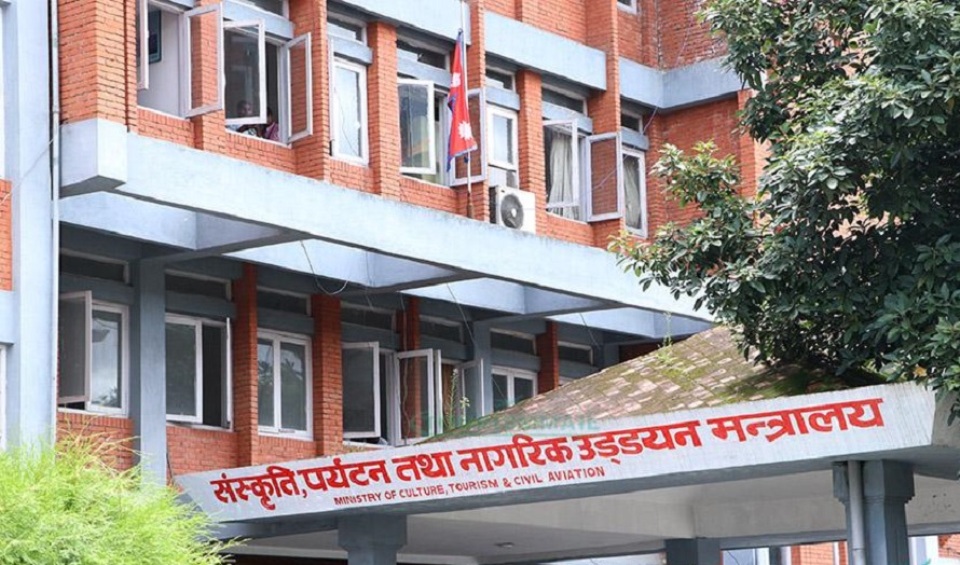
OR
NRB tells BFIs to stop interest rate distortion, other anomalies
Published On: February 9, 2017 09:33 AM NPT By: Sagar Ghimire | @sagarghi
NRB instructions
- Reduce interest spread
- Expect penalty if directed-sector lending requirement not met
- Stop ‘unfair practices’ of interbank ‘paper transactions’ at quarter-end for CCD compliance
KATHMANDU, Feb 9: Concluding that the banks and financial institutions (BFIs) are perpetuating anomalies in the financial sector, Nepal Rastra Bank (NRB) has instructed them to abide by self-regulation before the central bank takes stern action against them.
Summoning the leaders of the banks and financial institutions' associations at the NRB office on Wednesday against the backdrop of the liquidity crisis, NRB Governor Chiranjibi Nepal urged bankers to abide by self-regulation and prudent practices in their institutions.
The central bank has expressed its serious dissatisfaction over the recent anomalies seen in the banking sector including huge increment in the lending rates while no rise in the deposits of retail and longer types and 'unfair practices' of BFIs to comply with core-capital-cum-deposit (CCD) ratio requirement.
During the meeting, the central bank has issued a 13-point 'moral suasion' to the BFIs on issues ranging from interest rates to paid-up capital to directed sector lending requirement. 'Moral suasion' refers to a persuasion tactic used by central bank authority to influence and pressure banks into adhering to policy, rather than through forceful measures.
Among other instructions, the central bank has asked BFIs to narrow down their interest spread further. Stating that the interest rate spread capped at 5 percent was looking like ineffective, the central bank was getting compelled to review it soon. One practice of BFIs in setting interest rates that the central bank has cited in the statement is suddenly increasing the lending rate by 5 to 6 percentage points without raising the interest rates on retail and other longer-type deposit accounts. This, according to the statement, is 'interest rate distortion'.
While the NRB officials were shrugging off 'credit crunch' as a problem so far, the NRB has admitted that 'some friction' is being seen in the financial sector when the economic activities were gaining momentum.
“The central bank is careful toward the current financial imbalance in the bank and financial institutions making adverse impact on economic activities and dampening economic growth,” read the statement.
At a time when some bankers are attributing the sudden rise in the paid-up capital floor by the NRB through the monetary policy of fiscal year 2015/16, the central bank has reiterated its stance that such requirement would help in ensuring financial stability by reducing financial system risks. It also repeated the warning that it would penalize BFIs which fail to meet new paid-up capital requirements by mid-July. “It is advised to the BFIs that they do not make risky investment citing the pressure raise the paid-up capital,” reads the statement.
The NRB has also concluded that BFIs engaged in foul play while reporting their CCD ratio. It has also warned BFIs to stop unfair practices while calculating CCD ratio.
According to the statement, some BFIs were doing interbank transactions on paper at the end of the quarter by proposing interest rate 0.5 percentage point higher than the market rate to maintain CCD ratio. “This will be monitored regularly and the central bank will be compelled to take stern action if it is not corrected,” the statement added.
You May Like This

NRB likely to further reduce interest rate spread cap
KATHMANDU, June 28: Nepal Rastra Bank (NRB) officials have hinted that the central bank may further reduce interest spread for bank... Read More...

Bankers oppose NRB proposal on floating interest rate loans
KATHMANDU, March 23: Bankers have said that it was not possible to follow a new rule proposed by the Nepal Rastra... Read More...

BFIs, NRB blame each other for credit crunch problem
KATHMANDU, Feb 11: Bankers have lamented the inaction of Nepal Rastra Bank (NRB) toward addressing the existing problem of credit crunch. Read More...






Just In
- NUP Chair Shrestha: Resham Chaudhary, convicted in Tikapur murder case, ineligible for party membership
- Dr Ram Kantha Makaju Shrestha: A visionary leader transforming healthcare in Nepal
- Let us present practical projects, not 'wish list': PM Dahal
- President Paudel requests Emir of Qatar to initiate release of Bipin Joshi
- Emir of Qatar and President Paudel hold discussions at Sheetal Niwas
- Devi Khadka: The champion of sexual violence victims
- Nagarik Nayak Felicitation (Live)
- Qatar Emir in Kathmandu, President and Prime Minister welcome Emir at TIA (In Photos)



_20240423174443.jpg)







Leave A Comment